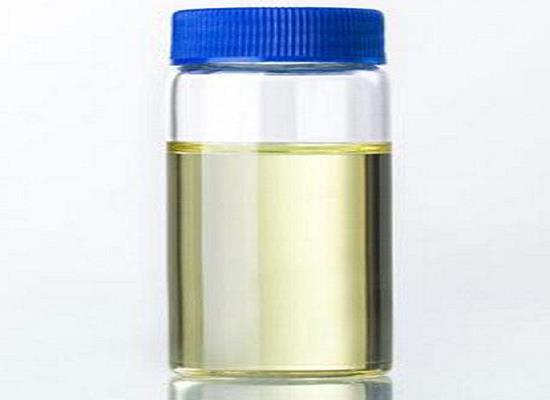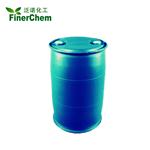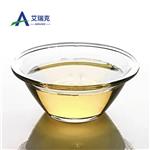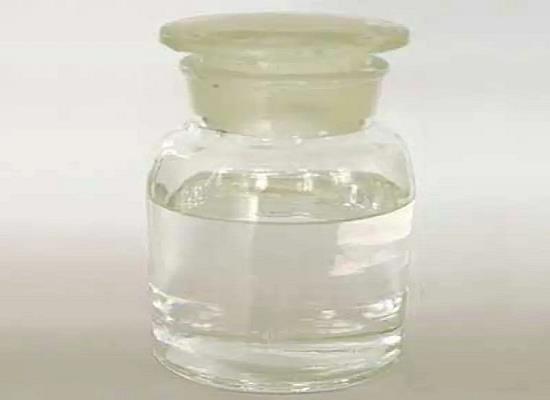2-Hydroxyethanesulphonic acid: natural occurrence, activity and safety
Oct 26,2023
General Description
2-Hydroxyethanesulphonic acid is a naturally occurring organic compound found in marine organisms and some freshwater fish. Its concentration varies depending on the species and location. While it exists naturally, it is primarily produced commercially for use in industries like cosmetics. A study found that 2-hydroxyethanesulphonic acid enhances calcium ion uptake in mitochondria, potentially playing a role in regulating mitochondrial calcium homeostasis under certain conditions. However, it is important to handle this substance with caution due to its potential safety hazards. Proper first-aid measures should be followed in case of exposure or accidents, and appropriate safety precautions must be taken during handling and storage to minimize risks.

Figure 1. 2-Hydroxyethanesulphonic acid
Natural occurrence
2-Hydroxyethanesulphonic acid is a naturally occurring organic compound that can be found in various marine organisms such as seaweed, clams, scallops, and shrimp. It is also present in some freshwater fish. The concentration of 2-hydroxyethanesulphonic acid varies depending on the species and location. For example, brown seaweed has been found to have a higher concentration of 2-hydroxyethanesulphonic acid than red or green seaweed. Similarly, the concentration of 2-hydroxyethanesulphonic acid in shrimp can vary depending on the species, with some species having significantly higher levels than others. In addition to being found in marine organisms, 2-hydroxyethanesulphonic acid has also been detected in certain soil samples. However, its natural occurrence in soil is relatively rare compared to its presence in marine environments. Overall, the distribution of 2-hydroxyethanesulphonic acid in nature appears to be quite varied, with concentrations varying depending on the organism and location. Despite its natural occurrence, 2-hydroxyethanesulphonic acid is primarily produced commercially and used in various industries such as cosmetics and personal care products. 1
Activity
2-Hydroxyethanesulphonic acid was studied for its activity on the transport of calcium ions (Ca2+) by mitochondria isolated from rat liver, along with other compounds such as taurine and its analogues. The study found that 2-hydroxyethanesulphonic acid enhanced Ca2+ uptake in a saturable process, with a Km value of approximately 2.63 mM. Taurine acted as an uncompetitive activator of Ca2+ uptake, increasing both the apparent Km and Vmax values of the process. This effect was not affected by the presence of cyclosporin A. N,N-Dimethyltaurine also stimulated Ca2+ uptake, but the process did not show saturation within the concentration range used. Aminoethylarsonate weakly inhibited basal Ca2+ uptake and competitively inhibited the stimulation caused by taurine. The other analogues had no significant effects. Furthermore, taurine did not affect Ca2+ release induced by ruthenium red, suggesting that its mechanism of action involves stimulating Ca2+ uptake via the uniport system rather than inhibiting Ca2+ release or modulating the permeability transition of the mitochondrial inner membrane. Overall, these findings indicate that 2-hydroxyethanesulphonic acid interacts with a yet unidentified mitochondrial site to regulate the activity of the uniporter. This unique role of 2-hydroxyethanesulphonic acid in modulating mitochondrial Ca2+ homeostasis could be particularly important under pathological conditions characterized by Ca2+ overload, such as ischaemia and oxidative stress. 2
Safety
2-Hydroxyethanesulphonic acid is a chemical compound that requires careful handling due to its hazardous nature. It is classified as a dangerous substance according to the GHS classification system, with the potential to cause severe skin burns and eye damage. This chemical is also corrosive and can be harmful to aquatic life with long-lasting effects. Therefore, anyone who comes in contact with 2-Hydroxyethanesulphonic acid must wear appropriate protective clothing, including gloves and goggles, and avoid any skin or eye contact. In case of contact, it is recommended to immediately rinse with a large amount of water for at least 15 minutes and seek medical attention. As proper disposal methods are also essential to prevent harm to the environment, trained professionals must handle this chemical safely. Anyone working with 2-Hydroxyethanesulphonic acid should follow established safety protocols and ensure that they have access to suitable equipment for its safe use. Overall, it is important to treat this chemical with respect and take all necessary safety precautions to avoid any harm to individuals or the environment. 3
Reference
1. Hellio C, Simon-Colin C, Clare AS, Deslandes E. Isethionic acid and floridoside isolated from the red alga, Grateloupia turuturu, inhibit settlement of Balanus amphitrite cyprid larvae. Biofouling. 2004 Jun;20(3):139-145.
2. Palmi M, Youmbi GT, Fusi F, Sgaragli GP, Dixon HB, Frosini M, Tipton KF. Potentiation of mitochondrial Ca2+ sequestration by taurine. Biochem Pharmacol. 1999 Oct 1;58(7):1123-1131.
3. 2-Hydroxyethanesulphonic acid: Safety and Hazards. PubChem, CID: 7866.
- Related articles
- Related Qustion
- 2-Hydroxyethanesulphonic acid: Overview, Versatile Applications and Detection Method Nov 12, 2024
2-Hydroxyethanesulphonic acid's versatile applications span electrochemistry, chemical synthesis, and biological detection. It can be reliably detected using gas-liquid chromatography.
- What is Isethionic Acid? Jan 19, 2020
Isethionic Acid is an important anion which could be found in animals or persons. A lot of researchers have done some studies about isethionic acid.
1-Fluoronaphthalene is a fluorinated aromatic compound used as a solvent additive in organic solar cell research, with safety precautions for handling.....
Oct 26,2023APIATBC, a biodegradable plasticizer, is widely used in cosmetics and pharmaceutical.....
Oct 26,2023Catalyst and Auxiliary2-Hydroxyethanesulphonic acid
107-36-8You may like
2-Hydroxyethanesulphonic acid manufacturers
- 2-Hydroxyethanesulphonic acid
-

- $0.00 / 200KG
- 2025-01-17
- CAS:107-36-8
- Min. Order: 1KG
- Purity: ≥99%
- Supply Ability: 500mt/year
- hydroxyethanesulphonic
-

- $0.00 / 1Kg
- 2024-12-24
- CAS:107-36-8
- Min. Order: 1Kg
- Purity: 99.9%
- Supply Ability: 200tons
- 2-Hydroxyethanesulphonic acid
-

- $10.00 / 1KG
- 2024-11-28
- CAS:107-36-8
- Min. Order: 1KG
- Purity: 99%
- Supply Ability: 10 mt






